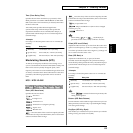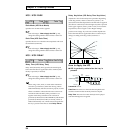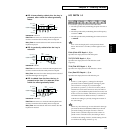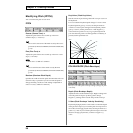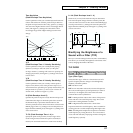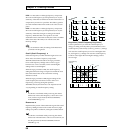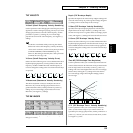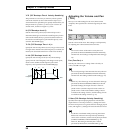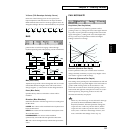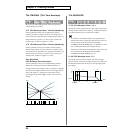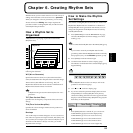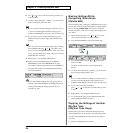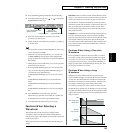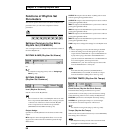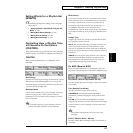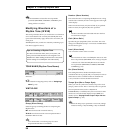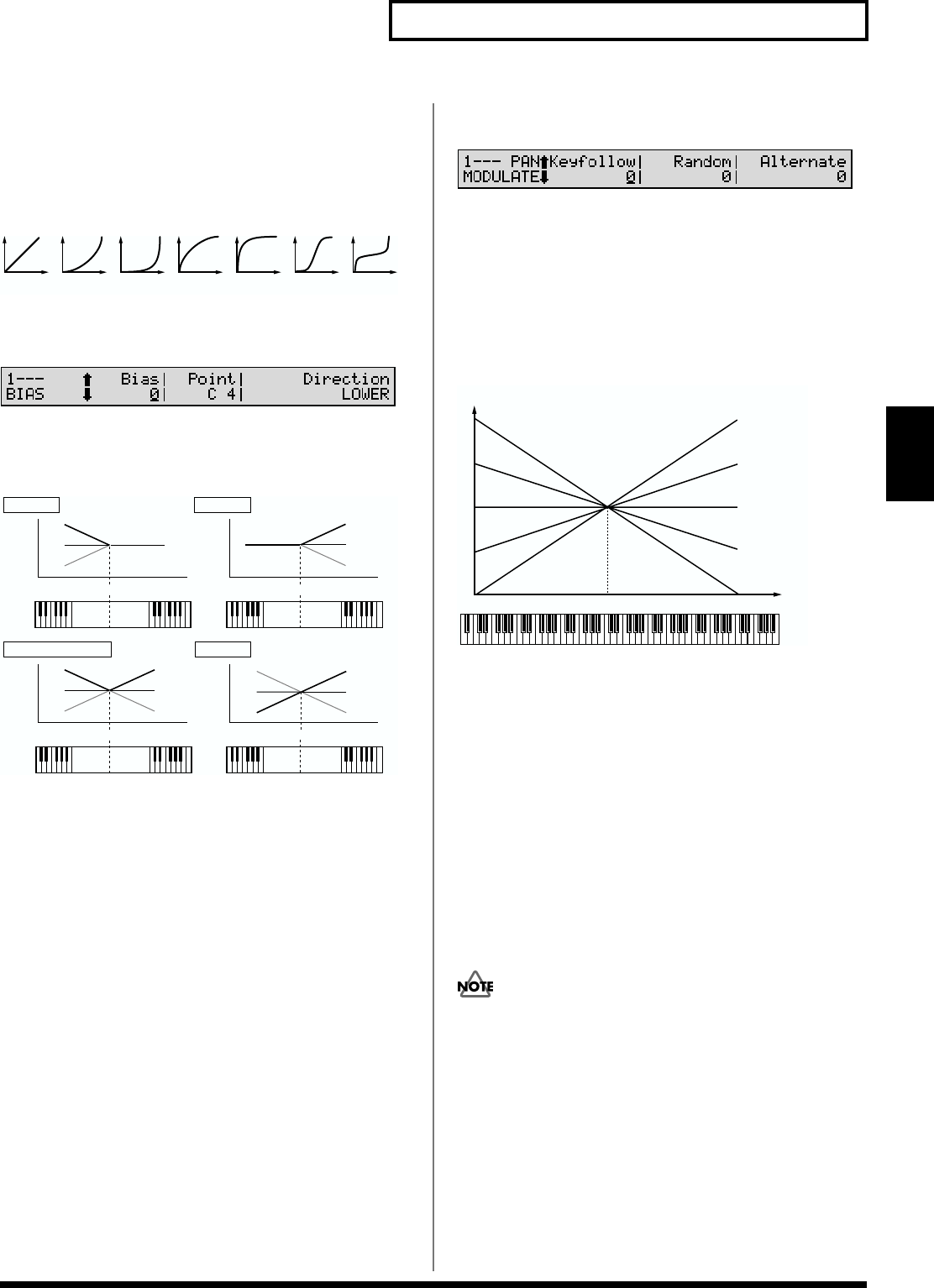
91
Chapter 5. Creating Patches
Chapter 5
V-Curve (TVA Envelope Velocity Curve)
Selects one of the following seven curves to specify how
keyboard dynamics will affect the TVA envelope. Set this to
FIXED when the amount of TVA Envelope applied is not to be
changed according to the force with which the keys are pressed.
fig.05-70
BIAS
fig.05-76
Bias causes the volume to be affected by the keyboard
position. This is useful for changing volume through
keyboard position (pitch) when playing acoustic instruments.
fig.05-77.e
Bias (Bias Level)
Adjusts the angle of the volume change that will occur in the
selected Bias Direction. Higher values will result in more
change. Negative (-) values will invert the change direction.
Point (Bias Point)
Specifies the key relative to which the volume will be
modified.
Direction (Bias Direction)
Selects the direction in which change will occur starting from
the Bias Point.
LOWER: The volume will be modified for the keyboard area
below the Bias Point.
UPPER: The volume will be modified for the keyboard area
above the Bias Point.
LOWER&UPPER: The volume will be modified
symmetrically toward the left and right of the Bias Point.
ALL: The volume changes linearly with the bias point at the
center.
PAN MODULATE
fig.05-78
Keyfollow (Pan Keyfollow)
Use this parameter if you want key position to affect
panning. Positive (+) settings will cause notes higher than C4
key (center C) to be panned increasingly further toward the
right, and negative (-) settings will cause notes higher than
C4 key (center C) to be panned toward the left. Higher
settings result in more change.
fig.05-79.e
Random (Random Pan Depth)
Use this parameter when you want the stereo location to
change randomly each time you press a key. Higher values
will result in a greater width of change.
Alternate (Alternate Pan Depth)
This setting causes panning to be alternated between left and
right each time a key is pressed. Higher values will result in a
greater width of change. This can be set either to L or R,
which will invert the order in which the panning is moved
between left and right. For example if two Tones are set to L
and R respectively, the panning of the two Tones will
alternate each time they are played.
When any value from Type 2–10 is selected for the Type
parameter (PATCH/COMMON/STRUCT) in the
Keyfollow, Random, Alternate parameter settings, the
output of Tones 1 and 2 are joined in Tone 2, and the
output of Tones 3 and 4 are joined in Tone 4. For this
reason, Tone 1 will follow the settings of Tone 2, and
Tone 3 will follow the settings of Tone 4 (p. 73).
1234567
C-1 G9
+
0
–
C-1 G9
+
0
–
C-1 G9
+
0
–
C-1 G9
+
0
–
+
0
–
+
0
–
LOWER&UPPER
LOWER UPPER
ALL
Bias Point
Level
Level
Level
Level
Key
Key
Key
Key
Bias Point
Bias Point
Bias Point
C4C3C2C1 C5 C6 C7
0
+50
+100
-50
-100
o
L
R
Pan
Key



